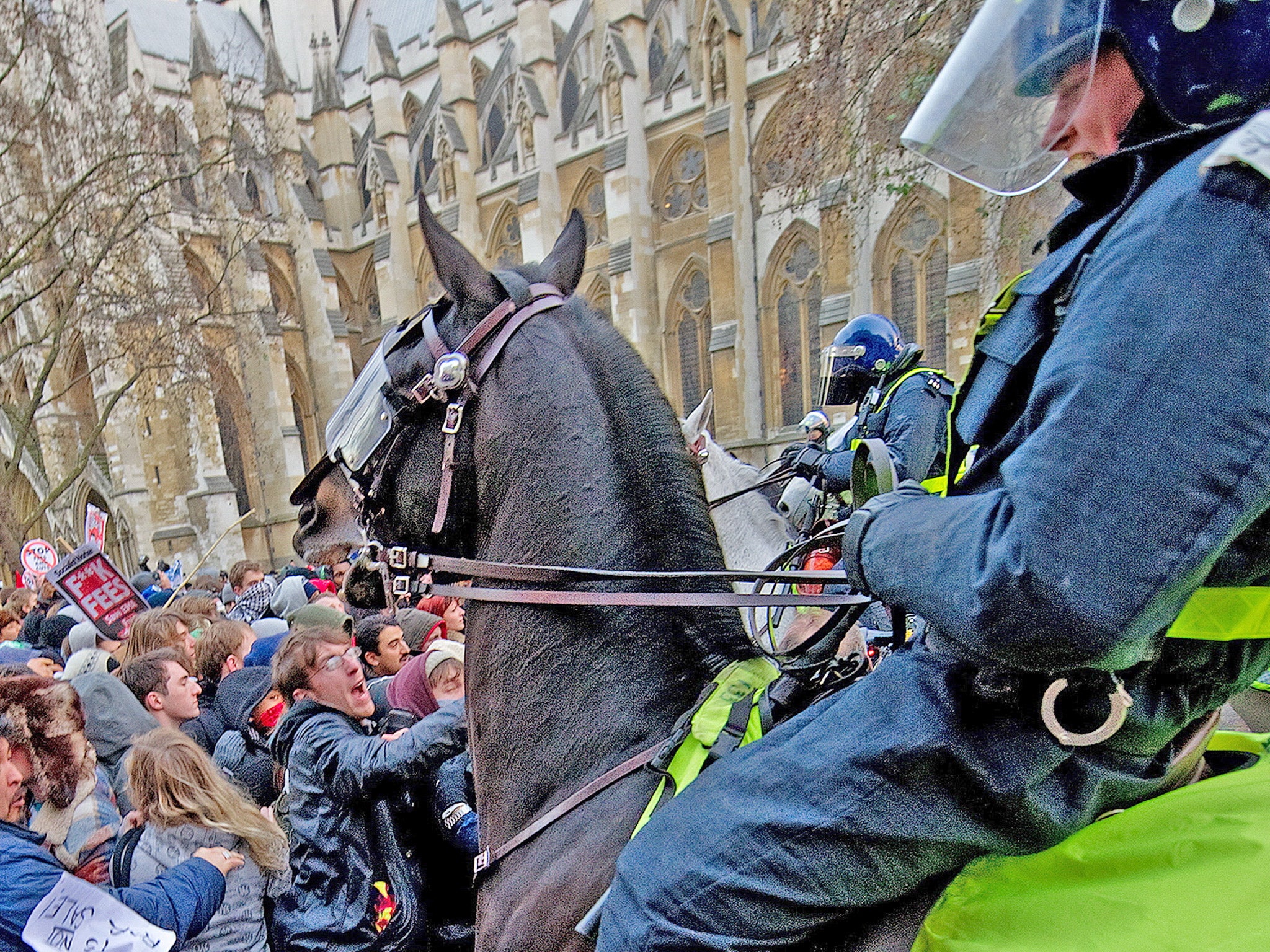Budget cuts threaten the future of police horses

Your support helps us to tell the story
From reproductive rights to climate change to Big Tech, The Independent is on the ground when the story is developing. Whether it's investigating the financials of Elon Musk's pro-Trump PAC or producing our latest documentary, 'The A Word', which shines a light on the American women fighting for reproductive rights, we know how important it is to parse out the facts from the messaging.
At such a critical moment in US history, we need reporters on the ground. Your donation allows us to keep sending journalists to speak to both sides of the story.
The Independent is trusted by Americans across the entire political spectrum. And unlike many other quality news outlets, we choose not to lock Americans out of our reporting and analysis with paywalls. We believe quality journalism should be available to everyone, paid for by those who can afford it.
Your support makes all the difference.Police horses could become a rare sight on Britain’s streets as forces across the country cut or merge their mounted section units to save money.
The closure of police stables has been condemned as “myopic” by officers who fear that regional forces’ ability to deal with public disorder will suffer irreversible damage for the benefit of relatively small savings.
Two forces, Eseex and Nottinghamshire, have taken the decision to scrap their mounted units in recent months, and South Yorkshire, West Yorkshire and Humberside last week agreed to combine their mounted section units, relocating their stables into one site.
The Nottinghamshire Police decision caused particular shock as the force’s units were deployed during last summer’s riots in the centre of Nottingham.
It is feared that other forces across the UK may follow suit by merging or disbanding their mounted section units all together.
In an effort to make the case for protecting Britain’s 14 remaining mounted units, officials from the Association of Chief Police Officers (Acpo) are considering commissioning an in-depth study into how they useful they are for dealing with public order incidents.
Rick Nelson of the Police Federation told The Independent: “To reduce or disband mounted branches is extremely myopic. Once numbers fall below a certain level, we will have lost invaluable experience forever and it will be hard to regain the experience which we as a Federation believe is essential for even basic quality policing of big public order events or high profile Policing.”
“On occasions savings of this type may end up costing the service more in the long run, Police horses at football and other public order situations or high profile community issues can reduce the total number of officers required to police the event considerably.
“Police horses are and have been a vital part in policing public order events and mitigate greatly the risk to the safety of Police Officers and the Public.”
Assistant Chief Constable Rod Hansen, Acpo lead for mounted sections, said the planned study into the mounted units could be “used as a tool by chief officer groups before they make a decision about their forces”.
Speaking to PoliceOracle.com, he said: “Mounted policing is too important to lose completely. There needs to be more qualitative research into how much mounted sections will be missed if they were not around.”
Essex police announced last month they would also be disbanding their mounted section to save £600,000 per year. Defending the decision, Assistant Chief Constable Sue Harrison, said:
“We know that the public police officers and staff hold the mounted section in great affection, and the unit has provided great service over the years. However, the financial pressures we face need to be met head on and inevitably difficult decisions have to be made.”
Join our commenting forum
Join thought-provoking conversations, follow other Independent readers and see their replies
Comments